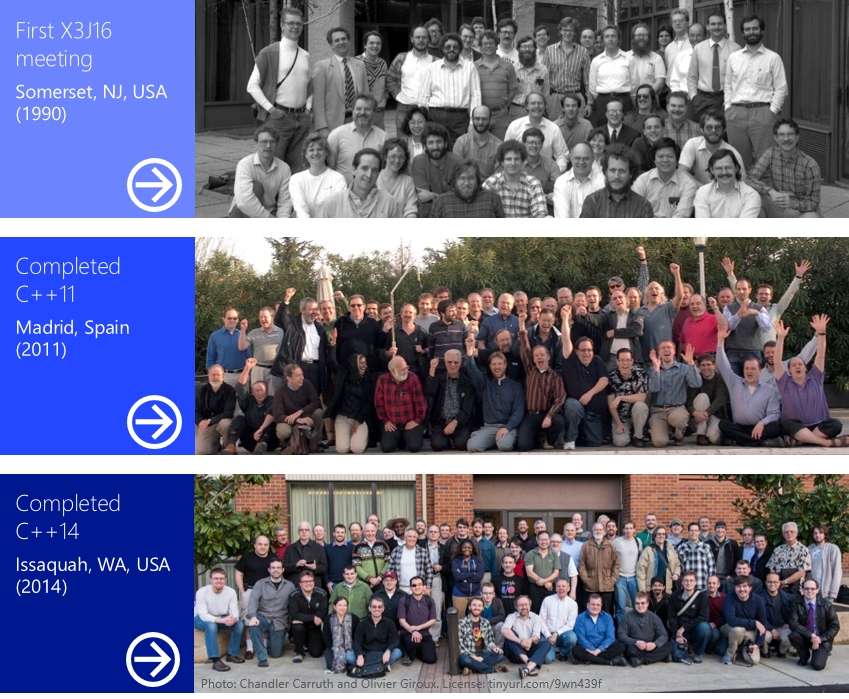Thoughts on C++14 -- Jens Weller
 Jens Weller gives a nice perspective on the C++ landscape in 2014.
Jens Weller gives a nice perspective on the C++ landscape in 2014.
Thoughts on C++14
by Jens Weller
From the article:
Yesterday we could read on isocpp.org that C++14 has been approved and will now become a valid ISO Standard. Great news for everyone in the C++ land! ...
But there is something else that makes C++14 for me special...

 CppCon is less than three weeks away! Announced today:
CppCon is less than three weeks away! Announced today: C++14 is done!
C++14 is done! Today in Infoworld:
Today in Infoworld: